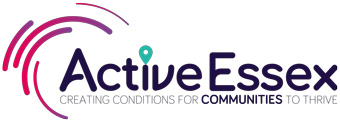The first task for the new evaluation team was to collaboratively develop an evaluation framework to help structure the work to be completed over the life of the contract. This will be an evolving document but foundational elements, such as the key research questions and the realist ‘develop, test and refine’ approach, will not change.
We knew that we wanted to explore ‘System Change’ and ‘Impact’ so two key research questions were developed:
- How and under what circumstances is the Essex LDP hardwiring physical activity into the system?
- How and why is Essex LDP contributing to their impact priorities?
Initially we held two workshops with key stakeholders to gain conceptual clarity around some of the key terms (hardwiring, system, impact) and to start exploring some of the strategies we have employed to date. These sessions and conversations outside of them also generated some areas of focus or exemplars which will help us to see how hardwiring and creating impact work in practice.
A draft of the evaluation framework was presented to the LDP core team and a survey was then issued to this group to ask for feedback on the proposed areas of focus – the feedback given was helpful and was used to make some changes. The current areas of focus are:
- Working with the Sustainable Travel Team
- Violence & Vulnerability Agenda
- Levelling Up
- LDP Workforce
- Gamification
- Place-based Working
- Microgrants Programme
As an evaluation team, we were happy with the level of collaboration that went into the creation of the framework. It is also hoped that involving the wider team in this initial phase will help to gain ‘buy in’ and engage them in evaluation moving forward.





